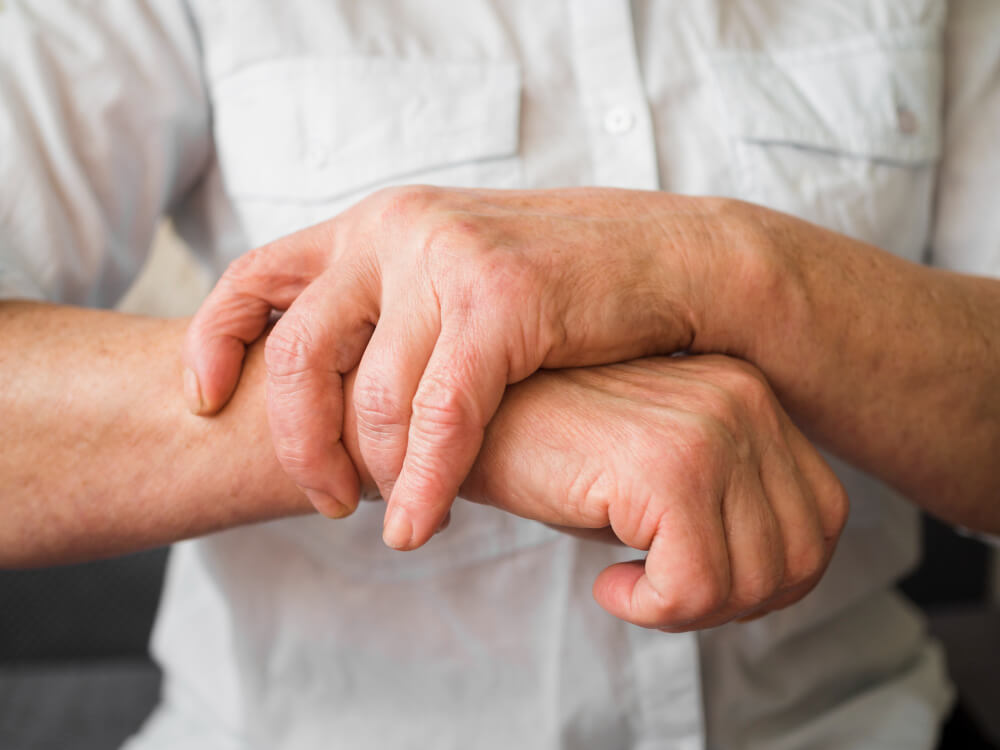What is Psoriatic Arthritis?
PsA is an autoimmune disease, meaning the body’s immune system mistakenly attacks healthy tissues. In PsA, this attack targets the joints and surrounding areas, leading to inflammation and damage. While the exact cause of PsA remains unknown, genetics and environmental factors are believed to play a role. People with a family history of psoriasis are more likely to develop PsA, and certain triggers, such as infections or injuries, can sometimes initiate the condition.
Signs and Symptoms of Psoriatic Arthritis
PsA can manifest in various ways, and symptoms can vary greatly from person to person. Here’s a breakdown of the most common signs and symptoms:
- Joint pain, stiffness, and swelling: This is the hallmark symptom of PsA, typically affecting the small joints of the hands and feet, although larger joints like the knees, hips, and spine can also be involved.
- Morning stiffness: Joints often feel stiff and difficult to move, especially upon waking up in the morning. This stiffness typically improves with activity.
- Swollen fingers and toes (dactylitis): PsA can cause entire fingers or toes to swell, resembling sausages. This can be quite painful and limit movement.
- Pain and tenderness where tendons and ligaments attach to bones (enthesitis): This can occur in areas like the Achilles tendon, the base of the spine, or around the hips.
- Nail changes: Psoriasis can affect the nails, causing pitting, discoloration, or separation from the nail bed.
- Fatigue: Many people with PsA experience persistent tiredness, even with adequate rest.
- Reduced range of motion: Inflammation in the joints can restrict movement and make everyday activities difficult.
Types of Psoriatic Arthritis
There are five main types of PsA, each with slightly different characteristics:
- Distal interphalangeal predominant PsA: This type primarily affects the small joints at the ends of the fingers and toes.
- Interphalangeal PsA: This involves inflammation in both the small and larger joints of the fingers and toes.
- Psoriatic arthritis with spondylitis: This type affects the spine, causing symptoms like back pain and stiffness.
Symmetric PsA: This mirrors rheumatoid arthritis, with symmetrical joint pain and inflammation on both sides of the body. - Enthesitis-related arthritis (ERA): This type is characterized by pain and inflammation where tendons and ligaments attach to bones.
Diagnosis of Psoriatic Arthritis
Diagnosing PsA can be a complex process, as there’s no single definitive test. Doctors typically rely on a combination of factors, including:
- Medical history: A detailed history of your symptoms, including the location and duration of joint pain, is crucial.
- Physical examination: The doctor will examine your joints for signs of swelling, tenderness, and limited range of motion.
- Family history: Knowing if you have a family history of psoriasis or PsA can be helpful.
- Blood tests: While no specific blood test diagnoses PsA, some tests can rule out other conditions with similar symptoms.
- Imaging tests: X-rays, MRI scans, or ultrasounds can reveal joint damage associated with PsA.
Treatment Options for Psoriatic Arthritis
There’s no cure for PsA, but treatments can significantly manage symptoms, improve joint function, and slow disease progression.
Here’s an overview of the different treatment options available:
- Medications:
- Nonsteroidal anti-inflammatory drugs (NSAIDs): These medications can help relieve pain and inflammation.
- Disease-modifying antirheumatic drugs (DMARDs): These medications slow the progression of PsA and joint damage.
- Corticosteroids: Injected corticosteroids can offer quick pain relief in specific joints.
- Biologic therapies: These newer medications target specific parts of the immune system to control inflammation.
- Physical therapy: A physical therapist can design an exercise program to improve joint flexibility, strength, and range of motion.
- Occupational therapy: Occupational therapists can help you with daily tasks by suggesting adaptive tools or modifying your work environment to accommodate your limitations.


